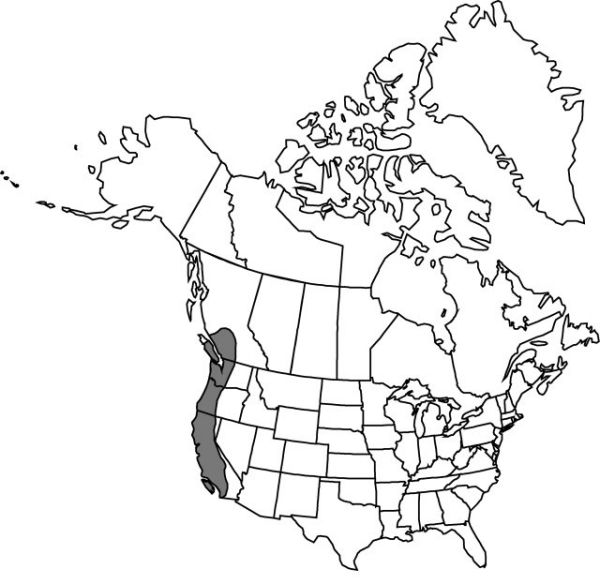Piperia transversa
Allg. Bot. Z. Syst. 12: 43. 1906.
Plants 12–57 cm. Stems basally swollen above tuberoid, 0.7–4.5 mm diam. distal to leaves; bracts 3–15. Leaves prostrate; blade 6–19 × 1–4.5 cm. Inflorescences ± densely flowered, 3.5–32 cm; rachis ± length of peduncle; bracts 3–12 mm. Flowers ± white with green or yellow-green midveins, fragrance nocturnal, strong, clovelike; sepals 2.5–4.5 × 1–2 mm; dorsal sepal projecting forward between petals, oblong to lanceolate; lateral sepals reflexed-spreading, obliquely oblong-lanceolate; petals reflexed-spreading, oblique to falcate, oblong, 2–5 × 1–2 mm; lip straight to ± deflexed, oblong to ovate-elliptic, 2.2–5.3 × 1–2.5 mm; spur ± horizontal, straight, 7–12 mm; viscidia oblong, 0.5–0.7 × 0.2–0.3 mm; rostellum blunt. Capsules 4–13 mm. Seeds cinnamon brown. 2n = 42.
Phenology: Flowering late May–Aug.
Habitat: Conifer and mixed evergreen forest, oak woodlands, chaparral
Elevation: 0–2600 m
Distribution

B.C., Calif., Oreg., Wash.
Discussion
Piperia transversa is pollinated by geometrid moths (J. D. Ackerman 1977).
Selected References
None.